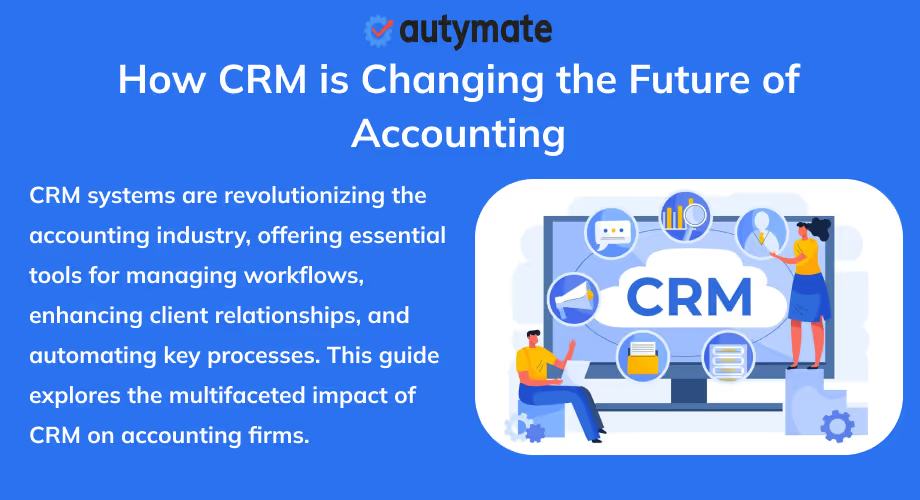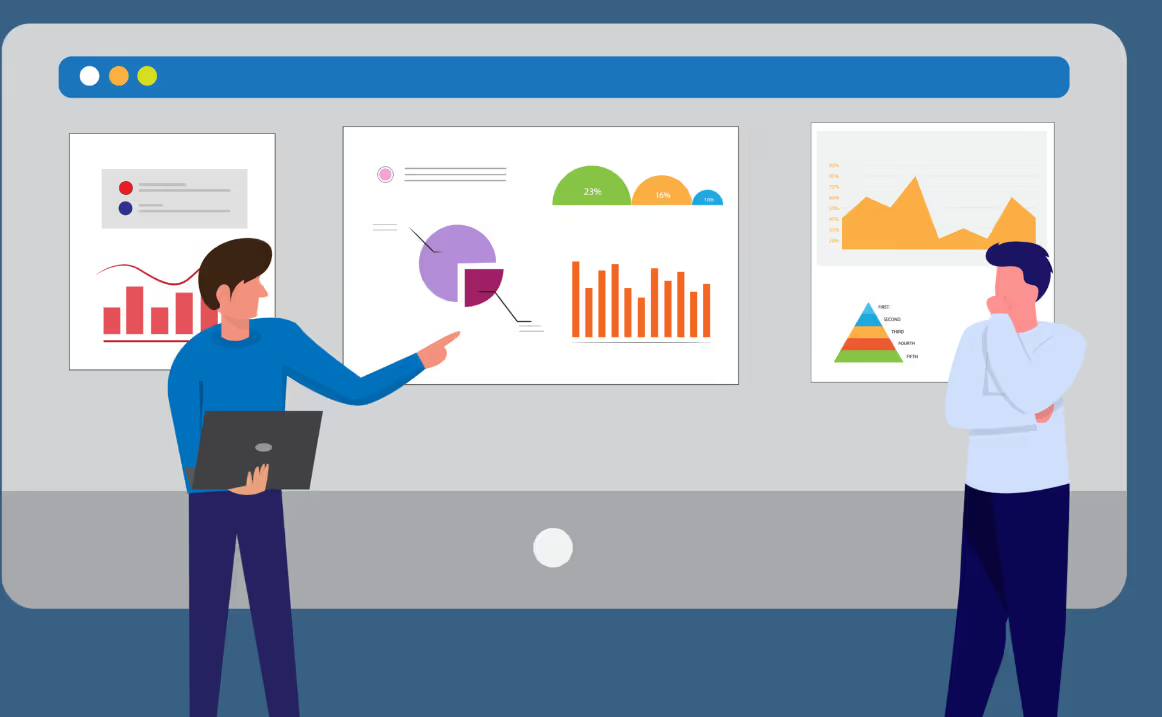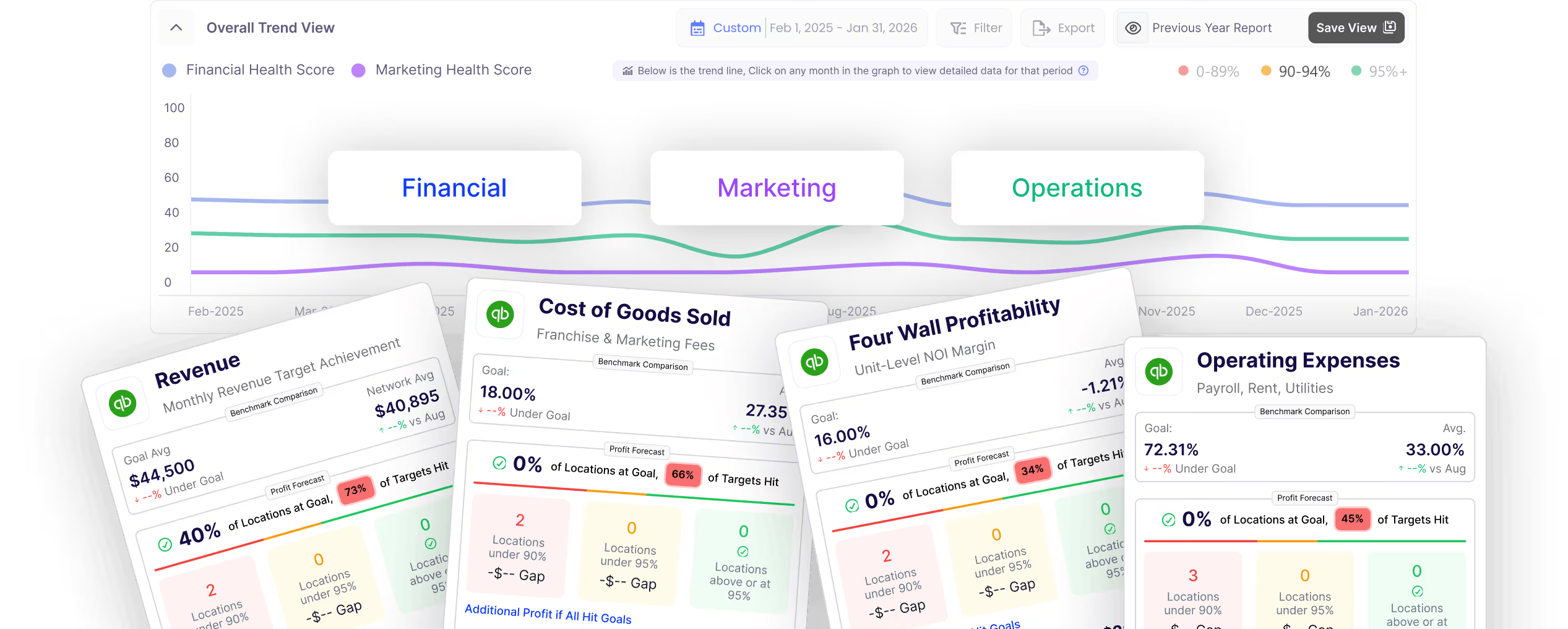
Back To All Blogs
How CRM is Changing the Future of Accounting

CRM systems are revolutionizing the accounting industry, offering essential tools for managing workflows, enhancing client relationships, and automating key processes. This comprehensive guide explores the multifaceted impact of CRM on accounting firms, emphasizing its role in efficient workflow management, targeted marketing, and the integration of automation for enhanced financial services.
In the accounting industry, firms need to stay ahead to succeed. Customer Relationship Management (CRM) systems are becoming more important for the future of accounting. The industry is always changing, so firms must stay ahead. CRM systems can help accounting firms by managing workflows, marketing, automating processes, and developing accounting services.

CRM for Accounting Firms
The foundation of any successful accounting firm lies in its client relationships. CRM systems play a central role in fostering and maintaining these relationships. By providing a centralized database of client information, preferences, and communication history, CRM for accounting firms facilitates personalized client interactions. This not only enhances client satisfaction but also streamlines communication channels, resulting in improved client retention rates.
Accounting Workflow Management Software
Efficient workflow management is a cornerstone of successful accounting practices. CRM integrated with workflow management software creates a seamless ecosystem for accounting professionals. This integration enables a collaborative environment where team members can track the progress of tasks, share important documents, and ensure deadlines are met. The result is an optimized accounting workflow that minimizes errors, enhances productivity, and ultimately leads to better client service.
Using CRM to grow accounting firm marketing
Marketing is a key component of business growth for accounting firms. CRM systems empower firms to create targeted marketing campaigns based on client data, preferences, and behavior. By understanding client needs, accounting firms can tailor their marketing strategies, leading to more effective outreach and client acquisition. Furthermore, CRM for accounting firms enables tracking the success of marketing initiatives, providing valuable insights for refining future campaigns.
CRM Accounting Software Streamlining Financial Operations
The integration of CRM and accounting software is a game-changer for financial professionals. By combining client relationship data with financial information, firms can gain a comprehensive view of each client's financial history and needs. This not only simplifies the accounting process but also allows for proactive financial planning and advisory services. CRM accounting software thus serves as a powerful tool for accountants to deliver more personalized and strategic financial guidance to their clients.

Accounting Process Automation
Automation is Evolving the accounting industry, and CRM systems are at the forefront of this transformation. The integration of CRM with accounting process automation tools streamlines routine tasks, such as data entry, invoicing, and reconciliation. This not only reduces the risk of human error but also frees up valuable time for accountants to focus on more complex, value-added activities. Automation, powered by CRM, is the key to achieving operational excellence in accounting firms.
Automated Accounting Services
The future of accounting lies in embracing automation to its fullest potential. Automated accounting services, Supported by CRM systems, are reshaping the profession. From AI-driven data analysis to machine learning algorithms predicting financial trends, automated accounting services powered by CRM are propelling the industry into a new era. This shift not only enhances accuracy and efficiency but also positions accounting firms as innovative and forward-thinking partners for their clients.
Accounting Workflow Process
Efficient accounting relies on a streamlined workflow process. From data entry to financial reporting, optimizing each step ensures accuracy and timeliness. By fostering collaboration and utilizing automation, accounting workflow processes enhance productivity and reduce errors. Accounting professionals can navigate complex tasks with ease, providing clients with reliable and timely financial information.
Enhancing Customer Connections through Accounting CRM
A specialized CRM tailored for accounting firms goes beyond managing data; it's a strategic tool for building client relationships. With features like client communication tracking and analytics, accounting CRMs empower firms to provide personalized services, optimize marketing strategies, and streamline operations. The integration of CRM in accounting ensures a holistic approach, fostering trust, loyalty, and efficient client interactions.

Data Security in CRM for Accounting Firms
With the increasing reliance on technology, the security of client information becomes a critical consideration for accounting firms. CRM systems, when implemented with robust security measures, ensure the Privacy and integrity of sensitive financial data. Encryption, access controls, and regular security audits are integral components of CRM for accounting firms, providing peace of mind to clients entrusting their financial information to these systems. This focus on data security not only meets regulatory compliance standards but also establishes trust and credibility, essential elements for any successful accounting firm.
Accounting firms must adapt to changing needs
As accounting firms grow, so do their operational needs. CRM systems offer Growth potential and flexibility, allowing firms to adapt to changing requirements seamlessly. Whether it's an increase in the client base, expansion into new markets, or diversification of services, a well-integrated CRM system can accommodate these changes. The ability to scale operations efficiently ensures that accounting firms can continue to deliver high-quality services without being constrained by their technology infrastructure.
Empowering Informed Decision-Making
The integration of CRM with analytics tools provides accounting firms with real-time insights into their operations. From monitoring client engagement metrics to tracking the performance of marketing campaigns, real-time analytics powered by CRM enable informed decision-making. This data-driven approach allows accounting firms to identify trends, capitalize on opportunities, and address challenges promptly. The result is a more agile and adaptive firm that can stay ahead of industry changes and client expectations.

Enhancing Client Engagement
CRM systems can facilitate the creation of client self-service portals, empowering clients to access relevant information and perform certain tasks independently. This not only enhances client engagement but also reduces the workload on accounting professionals for routine inquiries. Clients can use portals to see financial statements, track project progress, and talk to their accountants. When these portals are integrated with CRM, it improves the client-firm relationship by making it more transparent and accessible.
Integration with Third-Party Applications
The synergy between CRM systems and third-party applications is pivotal for creating a unified ecosystem. Accounting firms often use a variety of tools for different functions, such as project management, communication, and document management. Integrating these tools with CRM ensures a seamless flow of information across the organization. This integration optimizes collaboration, reduces manual data entry, and enhances overall efficiency, creating a cohesive and Joined technological environment for accounting professionals.
Maximizing the Benefits of CRM Implementation
Successfully implementing CRM for accounting firms requires a strategic approach to training and adoption. Training programs that educate staff on the features and functionalities of the CRM system are essential. Moreover, cultivating an environment of ongoing education and motivating employees to adopt new technologies are essential elements for successful CRM integration. Accounting companies that dedicate resources to comprehensive training and implementation strategies position themselves to maximize the benefits of CRM deployment, ensuring that the technology becomes an integral component of their daily operations.
Understanding the Complicated World of Accounting
In simple terms, the accounting industry has rules it must follow, and CRM systems help accounting firms stick to these rules. These systems can be set up to handle things like keeping track of documents and recording audits. CRM for accounting keeps a clear record of client interactions and financial transactions, making it easier to report compliance. By automating tasks related to following the rules and giving tools to keep an eye on things, CRM systems help accounting firms manage risks better.

The Role of AI in CRM for Accounting
Artificial Intelligence (AI) is increasingly becoming an integral part of CRM systems, opening up new possibilities for accounting firms. AI-driven analytics can provide deeper insights into client behavior and financial trends. Predictive analytics powered by AI can assist in forecasting future financial scenarios, enabling accounting professionals to offer proactive advice to their clients. The integration of AI in CRM for accounting firms not only enhances efficiency but also positions these firms as pioneers in leveraging cutting-edge technologies.
Efficient Accounting Operations for Small Businesses
Effortlessly streamline your accounting tasks and operations, unlocking substantial time savings. This in-depth guide navigates the intricacies of optimizing business processes, placing a spotlight on the pivotal role played by an efficient accounting team. By delivering exceptional customer service and producing insightful financial reports, your business can pave the way for sustainable growth and success.
Strategic Task Management and Finance Teams
Maximize your finance team's potential with strategic task management tactics. This article emphasizes how small enterprises can elevate customer support, simplify business operations, and gain vital insights through effective financial reporting. By implementing intelligent task management, businesses can enhance efficiency, ensuring seamless operations and informed decision-making for sustained success.
Automation for Enhanced Financial Management
Transform your workflow with accountants' automation. This cutting-edge software solution integrates seamlessly into your accounting system, enhancing efficiency and accuracy. Say goodbye to manual tasks and embrace a streamlined approach to financial management. Elevate your accounting processes with this innovative software solution tailored to meet the evolving needs of modern businesses.

Conclusion
CRM plays a crucial role in shaping the future of the accounting industry. It helps build strong client relationships, improves workflow management, enhances marketing efforts, streamlines financial operations, and introduces automated accounting services. CRM is a driving force behind the industry's transformation.
Accounting firms that use CRM technologies are setting themselves up for success now and in the future. CRM integration is not just a tech upgrade, but a strategic choice that will shape the future of accounting firms. Sign up for a free trial today to experience the transformative power of CRM in reshaping the landscape of financial management

Ready to Find Your
Profit Leaks?






